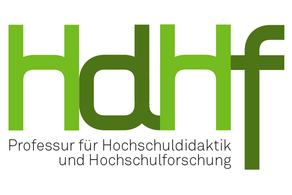Research Commercialization in Germany
A Story of Symbolic Compliance?
Society for Social Studies of Science (4S)
Jahrestagung 2015
Open Panel 59: Redrawing of boundaries and knowledge flows between industry and academia
Denver, Colorado, USA
13. November 2015
Abstract
The blurring of boundaries between academic and market logics (Thornton & Ocasio, 2008) in German academia has been promoted by the state in past decades (Krücken, 2003). The North Rhine Westphalia is one of the leaders in this regard. In this paper we are interested in understanding how the blurring of boundaries between universities and the market is taking place. Specifically, we ask (1) how research managers adopt and translate research commercialization policies (2) how academics perceive research commercialization imperatives and (3) how academics manoeuver within their environment in terms of their research commercialization practices. In doing so, it will contribute to a better understanding of motivations and barriers to engage in research commercialization.
We conduct a case study of one university in NRW using interviews with research managers and researchers in the bioengineering and patent data as primary data sources. We also use state and institutional policy documents and reports to understand the policy imperatives towards research commercialization.
This study suggest that researchers disclose part of their inventions partly in alignment with new federal and university patent regulations while the other part is rather de-coupled and hidden from university management. We thus observe symbolic compliance (Leišytė, 2007, Oliver 1991) to the university and state regulation. This strategy is stabilised by a discursive legitimation in which both researchers and research managers engage: the circumventing managerial bureaucracy will best contribute to smooth collaboration between university and industry and therefore best contribute to the regional economy and job growth.
References
- Krücken, G. (2003). Mission Impossible? Institutional Barriers to the Diffusion of the ‘Third Academic Mission’ at German Universities. International Journal of Technology Management, 25(1): 18–33.
- Leišytė, L. (2007). University governance and academic research: Case studies of research units in Dutch and English universities. Ph.D. thesis. Enschede: University of Twente, CHEPS.
- Oliver, C. (1991). Strategic responses to institutional processes. Academy of Management Review,
16: 145–179. - Thornton, P. H. & Ocasio, W. (2008). Institutional Logics. In: R. Greenwood, C. Oliver, K. Sahlin & R. Suddaby (Eds.), The Sage Handbook of Organizational Institutionalism (pp. 99–129). Thousand Oaks, London: Sage.





